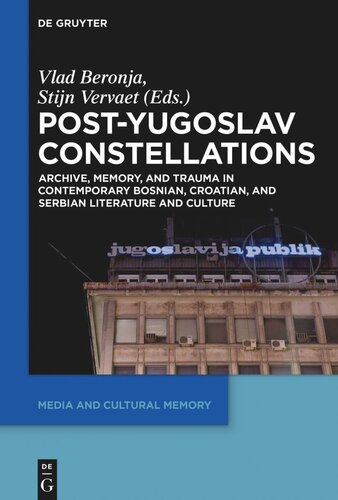

Most ebook files are in PDF format, so you can easily read them using various software such as Foxit Reader or directly on the Google Chrome browser.
Some ebook files are released by publishers in other formats such as .awz, .mobi, .epub, .fb2, etc. You may need to install specific software to read these formats on mobile/PC, such as Calibre.
Please read the tutorial at this link: https://ebookbell.com/faq
We offer FREE conversion to the popular formats you request; however, this may take some time. Therefore, right after payment, please email us, and we will try to provide the service as quickly as possible.
For some exceptional file formats or broken links (if any), please refrain from opening any disputes. Instead, email us first, and we will try to assist within a maximum of 6 hours.
EbookBell Team

4.4
12 reviewsMemory in the Balkans has often been described as binding, authoritative, and non-negotiable, functioning as a banner of war. This book challenges such a one-dimensional representation and offers a more nuanced analysis that accommodates frequently ignored instances of transnational solidarity, dialogue, communal mourning and working through a difficult past. Exploring a broad range of memorial practices, the book focuses on the ways in which cultural memory is mediated, performed and critically reworked by literature and the arts in the former Yugoslavia. Against the methodological nationalism of works that study Serbian, Croatian, or Bosniak culture as self-contained, this book examines post-Yugoslav literature, film, visual culture, and politicized art practices from a supranational angle. Not solely focusing on traumatic memories, but also exploring how post-Yugoslav cultural practices mobilize memory for a politics of hope, this volume moves beyond the trauma paradigm that still dominates memory studies. In its scope and approach, the book shows the relevance of the cultural memory of Eastern European citizens and the contribution they can offer to the building of Europe’s shared cultural memory and transnational identity.